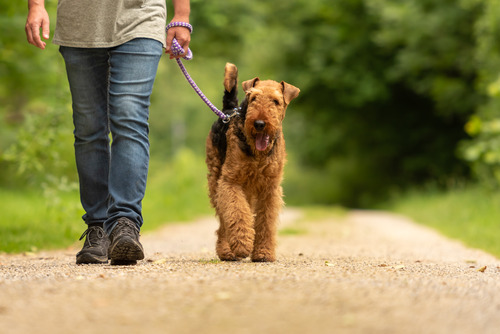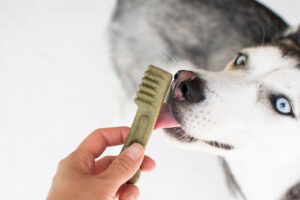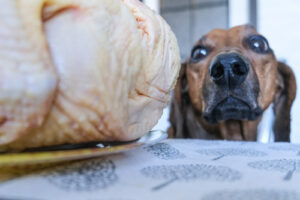Many pet owners enjoy outdoor activities with their dogs, especially in scenic areas like Bangor, ME. However, encounters with plants like poison ivy can raise concerns about their impact on canine health. The question, “does poison ivy affect dogs?” is a common one among dog owners. This blog explores what poison ivy is, how it affects dogs, and what steps you should take if you think your dog has come into contact with this plant.
Identifying Poison Ivy
Understanding what poison ivy looks like is the first step in preventing your dog from getting hurt. This plant typically features three glossy leaves with a red stem, and it can grow as a bush or vine. Poison ivy leaves are notable for their almond-shaped appearance and can have smooth or slightly toothed edges. They often appear shiny and can change color with the seasons, turning from green to bright red or orange in the fall. Recognizing poison ivy during your walks can help you keep your dog safe from unnecessary discomfort.
How Poison Ivy Affects Dogs
Contrary to what many might think, dogs are mostly resistant to the oils of poison ivy due to their fur. However, they can still carry the allergenic oil, urushiol, on their coats, which can affect humans and other pets.
Symptoms in Dogs
While it’s rare, some dogs might show signs of irritation from poison ivy, especially if they have short or thin fur. Symptoms could include red skin, itching, or rash primarily on their belly or any areas with less fur coverage.
Preventing Poison Ivy Exposure in Dogs
The best way to protect your dog from poison ivy is by keeping an eye out for the plant during walks and maintaining a safe distance. Here are a few tips to help prevent your dog from suffering from poison ivy exposure:
- Stick to cleared paths as much as possible.
- Keep your dog on a leash to control their movement.
- Bathe your dog after walking in areas known for poison ivy to remove any oils from their fur.
What to Do If Your Dog Contacts Poison Ivy
If you suspect that your dog has come into contact with poison ivy, there are specific steps you should follow to minimize discomfort and prevent the spread of the oil:
- Wear gloves to protect yourself from urushiol oil.
- Gently bathe your dog using a pet-safe shampoo to remove the oils from their coat.
- Clean your dog’s leash, collar, and any clothing you wore during the walk.
When to Contact Veazie Veterinary Clinic
If your dog shows severe reactions to poison ivy or if you have concerns about their exposure, it’s important to seek professional help. Our team at Veazie Veterinary Clinic is here to support you and your pet with any skin irritations or related issues.
Why Professional Help Is Important
A veterinarian can provide relief through medications if needed and can ensure that the irritation does not lead to more serious skin infections or complications. For peace of mind and expert care, call Veazie Veterinary Clinic at (207) 941-8840.
Keeping Your Dog Safe From Poison Ivy
While the risk of dogs being affected by poison ivy is low, it’s not impossible. Knowing how to identify and prevent exposure to poison ivy can help keep your outdoor adventures with your dog safe and enjoyable. Remember, if you have any concerns about poison ivy exposure or your dog’s health, Veazie Veterinary Clinic is just a phone call away. Keep your pets safe and healthy, and continue to enjoy the great outdoors together!





